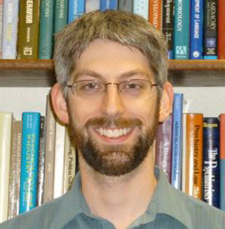An exploration by three professors at Fredonia into the future in “2016-2051: A Social Science Odyssey,” will launch the College of Liberal Arts and Sciences Brown Bag Lecture Series on Wednesday, Feb. 3 at noon in Williams Center Room S204.
 |
 |
 |
| Dr. Randolph Hohle |
Dr. Robert Kane |
Dr. Joseph McFall |
Drs. Randolph Hohle (Sociology), Robert Kane (Economics) and Joseph McFall (Psychology) will look into the future from the perspective of their respective disciplines.
Dr. Hohle will address the role of the nation-state's capacity in 2016 to respond to the growing domestic and global issues of environmental change, demographic changes that include the increase of racial and ethnic minorities in Western nations and increasing economic inequality. He noted that United Nations recently released its post-2015 eight Millennium Development Goals (MDGs) that range from "halving extreme poverty to halting the spread of HIV/AIDS and providing universal primary education" to guide global and national efforts to promote sustainable development in the 21st century. The United Nations hopes this framework will guide global and national development priorities. Yet, the UN MDGs are based on the assumptions of nation-states willingness and capacity to address emerging social problems.
Hohle’s talk will present two visions of the nation-state in 2051. The first, the neoliberal project, and specifically privatization, restricts access to resources to the most privileged segments of the population. The second vision of the nation-state, the citizen-state, addresses social problems from the standpoint of marginalized populations, and focuses on new forms of resource redistribution.
Dr. McFall will present, "Decision Metatheory: Developing a Contextual Model of Reasoning Errors." McFall noted that researchers have made tremendous progress in analyzing the cognitive processes involved in decision making, but the role of the situation/context and its interaction with cognitive and behavioral factors remains underdeveloped in explaining decisions and reasoning errors. He noted that this neglect of the "decision space" – the situation and social context in which a decision in made – is arguably a root cause of the decision science crisis. Sound decision meta-theory is needed prior to the year 2051. He added that as 2051 approaches, society will be in the tail end of the baby boomer crisis due to the demographic bulge of older adult baby boomers straining health care and retirement systems. Many opportunities for important decision making will emerge within this socio-historical context as society adapts to greater needs for adult care giving and societal demand for new social policy in health care and retirement systems.
Dr. Kane will discuss income inequality, considered one of the most evocative issues in recent times. Kane noted that a potential (and likely) explanation of rising inequality is "skill-biased technical change," or the observation that technology is biased towards skilled workers. Simultaneously, he added, there's been a tremendous increase in the supply of skilled workers and a rise in inequality. He discusses a body of literature – "A race between technology and supply" – the former increases inequality, the latter decreases it. Moreover, a rise in the supply of skills tends to increase the bias in technology. Consequently, increased education can lead to a rise in the skill-premium.
The Brown Bag Lecture Series is free and open to the public. For more information, contact Jack Croxton, chair of the CLAS Brown Bag Committee, at 716-673-3129.



